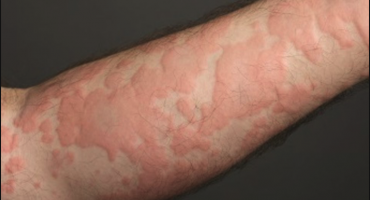
Psoriasis (Psoriasis)
Psoriasis (Psoriasis)
Psoriasis is a chronic disease that is common in the community and persists with exacerbations. Lesions; It is seen as sharp redness, redness with the name of psoriasis (silver) color on the disease.
What are the causes of psoriasis?
The cause of psoriasis is not known precisely; The immune system, genetic and environmental factors are thought to be effective. Environmental factors (streptococcal throat infections, drugs [cortisone, lithium, some blood pressure medicines, aspirin, etc.], excessive alcohol intake, smoking, scratching, cutting, sunburn, etc.) and mental stress disease can initiate or exacerbate.
Is Psoriasis Infectious?
The disease does not get into contact with anyone.
What is the course of psoriasis?
It is usually a long-term chronic disease with exacerbations and well-being. Symptoms and severity of the disease may vary from person to person, or even from the same person over time.
How is psoriasis diagnosed?
The diagnosis can be made with clinical findings. Skin biopsy may be required rarely.
How is psoriasis treated?
Although there is no definitive treatment of the disease, the disease can be controlled with proper treatment and long-term well-being can be achieved. Many factors are effective in the choice and treatment of the treatment (disease prevalence, location, nail and joint involvement, etc.). Drugs and behaviors that can exacerbate the disease (scratching, bathing, pouches, etc.) should be avoided. In the case of limited psoriasis, local therapies are primarily chosen (drugs that remove dandruff on the skin surface, drugs with cortisone, antralin, calcipotriol [synthetic vitamin D], calcineurin inhibitors). These methods can be used together. Methotrexate, cyclosporin-A, acitretin (synthetic vitamin A) and phototherapy are used in resistant, widespread disease. If there is no response to this, biological agents (adalimumab, etanercept, infliximab, ustekinumab etc.) can be selected. The knowledge and experience of the dermatologists on the disease as well as the compliance of the patients with the proposed treatment is important in the success of the treatment.
'' Contact your dermatologist when you have skin disease. Trust your dermatologist. ''













.png)
